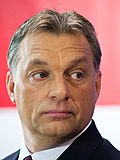Next Hungarian parliamentary election
|
|
||||||||||||||||||||||||||||||||||||||||||||||||||||||||||||||||||||||||||||||||||||||
|---|---|---|---|---|---|---|---|---|---|---|---|---|---|---|---|---|---|---|---|---|---|---|---|---|---|---|---|---|---|---|---|---|---|---|---|---|---|---|---|---|---|---|---|---|---|---|---|---|---|---|---|---|---|---|---|---|---|---|---|---|---|---|---|---|---|---|---|---|---|---|---|---|---|---|---|---|---|---|---|---|---|---|---|---|---|---|
|
||||||||||||||||||||||||||||||||||||||||||||||||||||||||||||||||||||||||||||||||||||||
|
All 199 seats in the National Assembly 100 seats needed for a majority |
||||||||||||||||||||||||||||||||||||||||||||||||||||||||||||||||||||||||||||||||||||||
|
||||||||||||||||||||||||||||||||||||||||||||||||||||||||||||||||||||||||||||||||||||||
|
||||||||||||||||||||||||||||||||||||||||||||||||||||||||||||||||||||||||||||||||||||||
TBD
The next Hungarian parliamentary elections will be held in or before spring 2018.
At the previous parliamentary election, in April 2014, the incumbent government — composed of the Fidesz and its satellite alliance the Christian Democratic People's Party (KDNP) — was able to achieve a two-thirds majority for the second consecutive time with 44.87 percent of the votes. According to their critics, this overwhelming proportion was only because of the new election law (mostly due the introduction of compensation votes also for the individual winners) which was adopted by the ruling coalition in 2011. In early 2015, however, Fidesz lost its two-third majority following the 2014 Hungarian Internet tax protests and subsequent decrease in support for the government. The governing party suffered defeats at two parliamentary by-elections in February and April 2015, both in Veszprém County.
The left-wing electoral alliance Unity, which failed to win the 2014 national election after its five constituent parties gained a total of only 38 seats, broke up shortly thereafter. Its former member parties (MSZP, Együtt–PM and DK) participated in the May 2014 European Parliament election individually, while the MLP did not participate in the election at all. Due to this fragmentation of the left-wing opposition, the radical nationalist Jobbik became the second largest party in a nationwide election for the first time since its establishment. The PM broke off the permanent nature of its alliance with Együtt on 9 November 2014.
After a few months of crisis for Fidesz from November 2014, which was marked by internal conflicts (e.g. businessman Lajos Simicska's fall from grace within Fidesz) and corruption scandals, the governing party regained much of its lost support during the European migrant crisis during the summer of 2015, when Prime Minister Viktor Orbán announced the construction of a 4-metre-high (13 ft), 175-kilometre-long (109 mi) fence along its southern border with Serbia. The Hungarian government also criticised the official European Union policy for not dissuading migrants from entering Europe. The barrier became successful, as since 17 October 2015 onward, thousands of migrants were daily diverted to Slovenia instead.
...
Wikipedia








